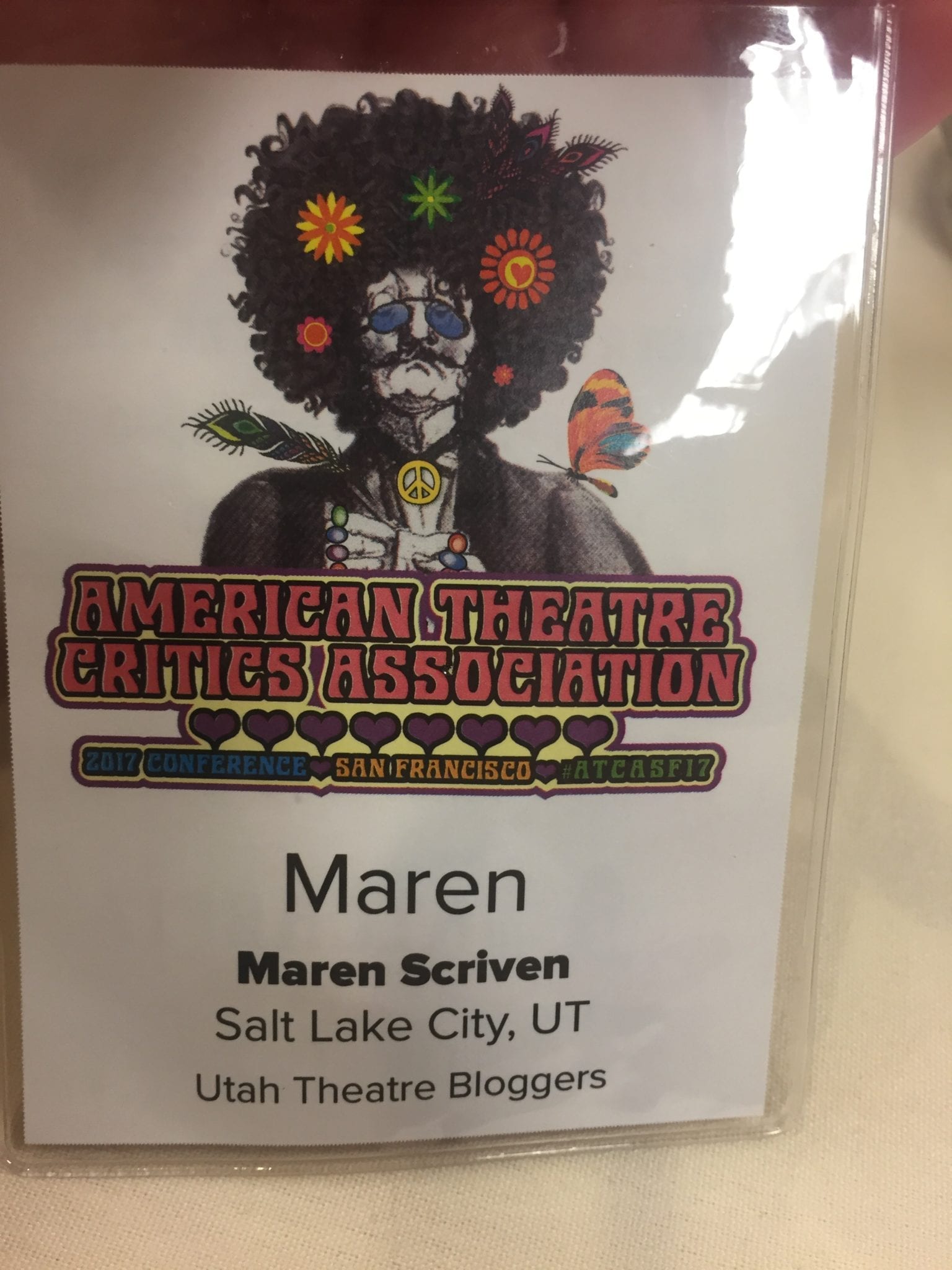SAN FRANCISCO — Several years ago I found Utah Theatre Bloggers Association, and was so excited to get the chance to see production in Utah and offer my thoughts about productions and the Utah theatre scene. Through the mentorship of UTBA’s members, I got to work and develop the skills to become even more confident in my role as a theatre critic. This year, again through mentorship of those who paved the way for me, I was accepted as a member of the American Theatre Critics Association (ATCA), and spent five days at a conference in San Francisco learning from those who have been working in the field for decades, and discussing the differences between Broadway and regional scenes, how theatrical productions develop, and the future of criticism as communication continues to evolve.

The best part of my experience was being able to represent the Utah theatre scene. Many of the people who met me would be surprised to meet a young(ish) woman from Salt Lake, and would as if we had much theatre to speak of. I was proud to state that not only do we have large houses for touring companies like the new Eccles and the beloved Capitol, but that we have regional theatres that have national accolades such as Pioneer Theatre Company and (of course) the Tony Award winning Utah Shakespeare Festival. More important, though, I was able to show and discuss some of the ways that we are growing as a community, with things like Grassroots Shakespeare Company, Utah Repertory Theater Company, and the Ziegfeld Theater hitting the scene, along with fabulous university productions in the state. I also talked about the Great Salt Lake Fringe Festival, the new works that are sponsored from Tuacahn in the south to the Utah Festival Opera and Musical Theatre in the north.
In San Francisco I was able to see several shows, including one called Grandeur at the Magic Theatre, wonderfully located within the Fort Mason Center for Arts and Culture, and As You Like It at the California Shakespearean Theatre, a venue outside of San Francisco surrounded by trees, with stage under the stars. Companies such as the San Francisco Playhouse offered the ATCA members backstage access, and we attended lectures on criticism, elements of theatre, and how to include all aspects of a production in your assessment. I was able to see the world premiere of the musical Monsoon Wedding, a play called The Roommate, and a regionally produced Smokey Joe’s Café.

The best part of the trip was the day spent at TheatreWorks in Silicon Valley. This is a place where shows are worked through in workshops and brought to the stage for premiere before launching off. The Tony Award winning Memphis, among countless others plays, got their start at this venue. I was impressed by the many elements that it takes to begin a show, and the amount of financial and artistic support that each of these plays receives while in development. We were privileged to see a sneak preview of a show in development called The Four Immigrants, based upon Japanese Manga that I feel shows a great deal of promise.
The most animated discussion was about the future of criticism, as many of the newspapers that traditionally housed resident arts critics are now cutting corners, and many people begin to wonder if there is still a place for criticism in the days of yelp and rottentomatoes. As an online critic, I see the issue as one that is evolving, but still important. My main reason for becoming a critic is because I love theatre, and I wanted to find ways to support the arts in my own community. I am proud of what we have done at UTBA, working to help those interested in finding productions to see what is available and also to help improve our own theatrical community.
In the San Francisco Playhouse there is a quote (see photo above) that states that theatre artists make their community better, “One play at a time.” I know that the Utah theatrical community does this. I am always ecstatic to hear about companies that are championing a new work, and believe that the Utah theatre scene has the potential to do even more to encourage new talent, new criticism, and new productions throughout the state. I think informed criticism still has a place, and that the Utah theatre community has benefited from the voices that continue to be a part of the development of the arts and culture that we love to share.
[box]To learn more about the American Theatre Critics Association, visit americantheatrecritics.org.[/box]
